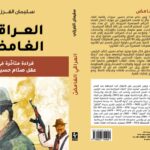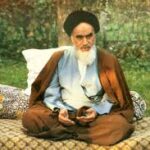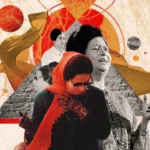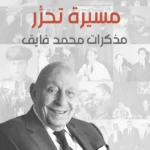
«تسامي جبران فوق «الفساد المطلق
«تسامي جبران فوق «الفساد المطلق
لهذا المقال قصة. عندما عزمت “لجنة تكريم جبران خليل جبران” في لندن على إقامة حفلة تكريمية كبرى، برعاية رئيس “المجلس الثقافي البريطاني”، اللورد بالومبو وزوجته السيدة حياة مروَّة، حُددت لها ليلة الثلاثاء في 19 تشرين الثاني من عام 1991، طلبت مني اللجنة أن أكتب مقالاً باللغة الإنكليزية للمجلة التي تضمَّنت برنامج الاحتفال. وقد حضر من لبنان الصحافي غسان تويني، الذي ألقى كلمة بالمناسبة، والشاعر أدونيس، الذي قرأ قصيدة لجبران. وضمن “رحلتي مع الزمن” أعيد نشر مقالي المذكور بالإنكليزية وترجمته بالعربية، وهكذا ستكون بالتوالي أعمالي المفقودة عند الحصول عليها.
من الشائع أن يُقال إن جبران هو أشهر كاتب لبناني في الغرب، أو بالأحرى في العالم الناطق بالإنجليزية. نادرًا ما تجد منزلًا مثقفًا في هذا العالم ليس على معرفة به من خلال أشهر أعماله “النبي”. بهذا، حمل جبران اسم لبنان إلى تقريبًا كل منزل في الغرب؛ ولكن كذلك فعل الخاطفون اللبنانيون مؤخرًا، وفعلها أيضًا المغامرون التجاريون الذين يحاكون الفينيقيين القدماء.
هنا ينتهي “التشابه” الذي كسره جبران قبل هجرته غربًا، مما خلق تباينًا رائعًا بين كونك متماثلًا وغير مشابه. نفس الوطنين ونفس المتدينين الذين هاجمهم بقوله: “لكم لبنانكم ولي لبنانى؛ لكم دينكم ولي ديني”. في هذا التباين يكمن سر تجاوز جبران.
كإنسان ذو رؤية، أدرك أن التجاوز هو السبيل الوحيد لتحويل هذا التباين إلى عمل تحرر. لأن العقل المتسامي لا يمكنه قبول تفوق الوسطية على الموهبة، أو الجهل على المعرفة، أو التعصب على التسامح، أو الغرور على التواضع والكبر على الكرامة. بالنسبة له، هذه هي الفساد المطلق.
تحقيق التحرر من خلال التجاوز، بالنسبة لجبران، هو موضوع التنوير. فقط المتنورون يمكنهم إلغاء الفساد المطلق. لقد تجاوز جبران لبنان إلى الشام، والشام إلى الغرب ليكتشف أن حتى أعظم حضارة في الغرب لا يمكن أن تكون الحدود النهائية لتجاوزه. يمكن أن يُعبّر عنها بلطف مثل مزمور سليمان: “تكون في الأرض حبة من القمح على قمة الجبل، ويهتز ثمرها مثل لبنان؛ ويزدهرون في المدينة مثل العشب في الأرض؛ ويستمر اسمه طالما الشمس” (مزمور 72:16، 17).
ومع ذلك، فإن الحدود النهائية لتجاوزه ليست حتى ما قد يُسمى عابرًا أو عالميًا. إنها كونية.
The Transcendence of Gibran
by Sleiman Ferzoli
It is commonly said that Gibran is the best known Lebanese author in the West, or rather in the English speaking world. Seldom a literate household in this world is not acquainted with him through his most popular work The Prophet. By this, Gibran carried the name of Lebanon to almost every household in the West; but so also did the hostage takers of Lebanon of late, and so did the mercantile adventurers simulating the ancient Phoenecians.
Here ends the ‘sameness’ which Gibran broke with before his migration westward, thus creating a fascinating nuance between being the same and not similar. The same countrymen and the same co-religionists he assailed by saying: ‘you have your Lebanon and I have mine; you have your religion and I have mine’. In this dissimilarity lies the secret of Gibran’s Transcendence.
As a man of vision, he realised that transcendence is the only way to transform such dissimilarity into an act of liberation. For a transcendental mind cannot accept the supremacy of mediocrity over talent, of ignorance over knowledge, of bigotry over tolerance, of vanity over humility and arrogance over dignity. To him this is the absolute corruption.
The attainment of liberation by transcendence, to Gibran, is the theme of enlightenment. Only the enlightened can undo the absolute corruption. He transcended the Lebanon into the Levant, and the Levant into the West to discover that even the great civilisation of the West cannot be the final frontier of his transcendence. It can only be delicately worded like a Psalm of Solomon: ‘A handful of corn in the earth upon the top of the mountain; the fruit thereof shall shake like Lebanon; and they in the city shall flourish like grass in the earth; his name shall be continued as long as the sun’ (Psalm 72:16, 17).
Yet the final frontier of his transcendence is not even what may be casually called ‘international’ or ‘global’. It is cosmic.
A cosmic man, a fellow of the cosmic order beyond the tenses.
سليمان الفرزلي
19/11/1991




